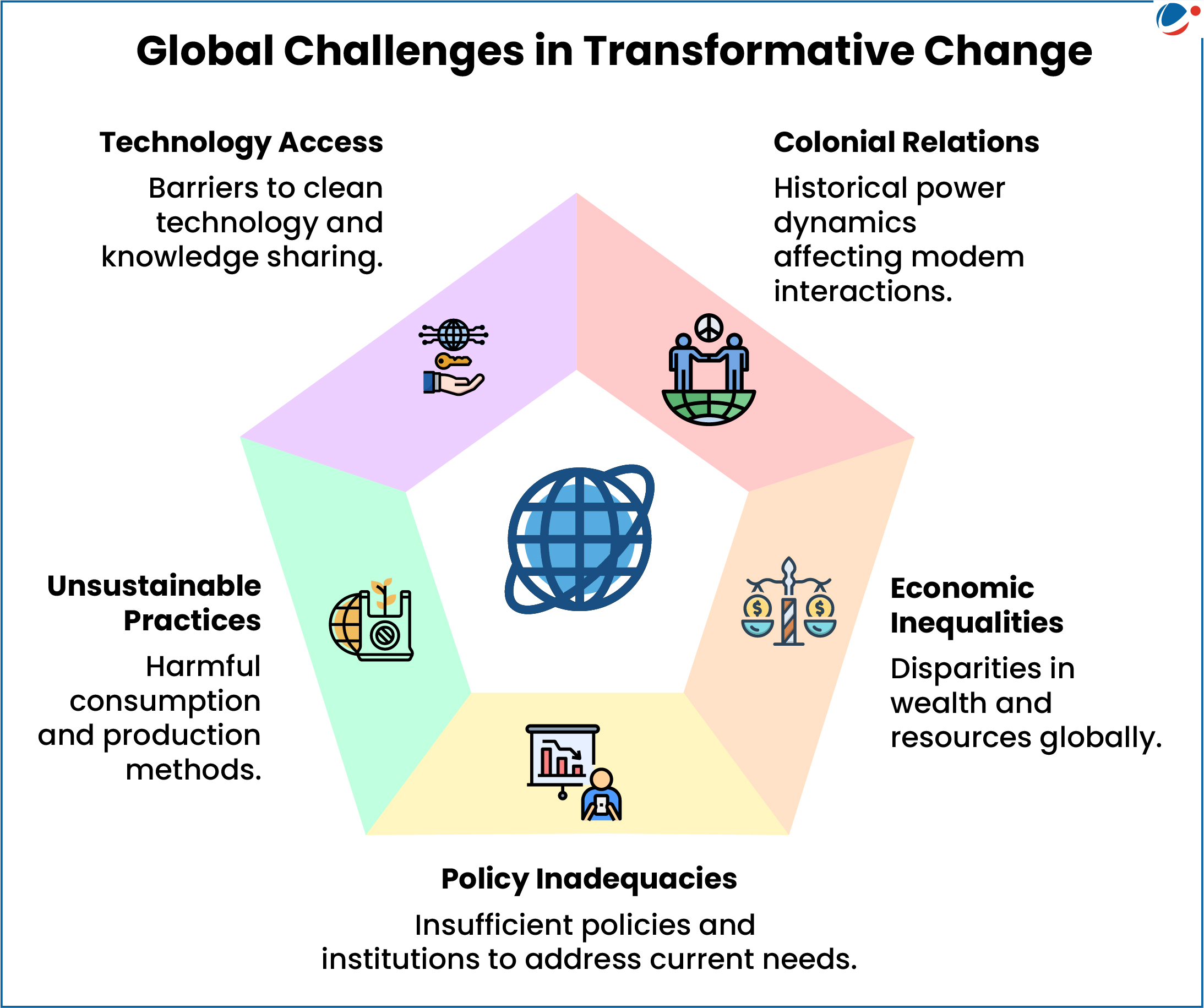The Report is also known as Assessment Report on the Underlying Causes of Biodiversity Loss and the Determinants of Transformative Change and Options for Achieving the 2050 Vision for Biodiversity.

About Transformative Change
- Definition: Transformative Change is a fundamental system-wide shifts in views (ways of thinking), structures (ways of organizing & governing) and practices (ways of doing & behaving).
- Four principles to guide transformative change: equity and justice; pluralism and inclusion; respectful and reciprocal human-nature relationships; and adaptive learning and action.
Five Strategies for Transformative Change for Global Sustainability
- Conserve, restore and regenerate places of value. E.g., Community Forestry Programme in Nepal; Community-based Forest management in India.
- Drive systematic change in sectors responsible for nature’s decline. Sectors like: agriculture and livestock, fisheries, forestry & urban development.
- Transform economic systems for nature and equity. E.g., Biodiversity management needs over $900 billion yearly, but only $135 billion is spent.
- Over 50% of annual global GDP ($58 trillion) depends moderately to highly on nature.
- Transform governance systems to be inclusive & accountable. E.g., The Galapagos Marine Reserve exemplifies ecosystem-based governance.
- Shift views to recognize human-nature interconnectedness: Achieved through nature-based experiences, policy support, and integrating Indigenous knowledge to transform behaviors.
About IPBES
|





